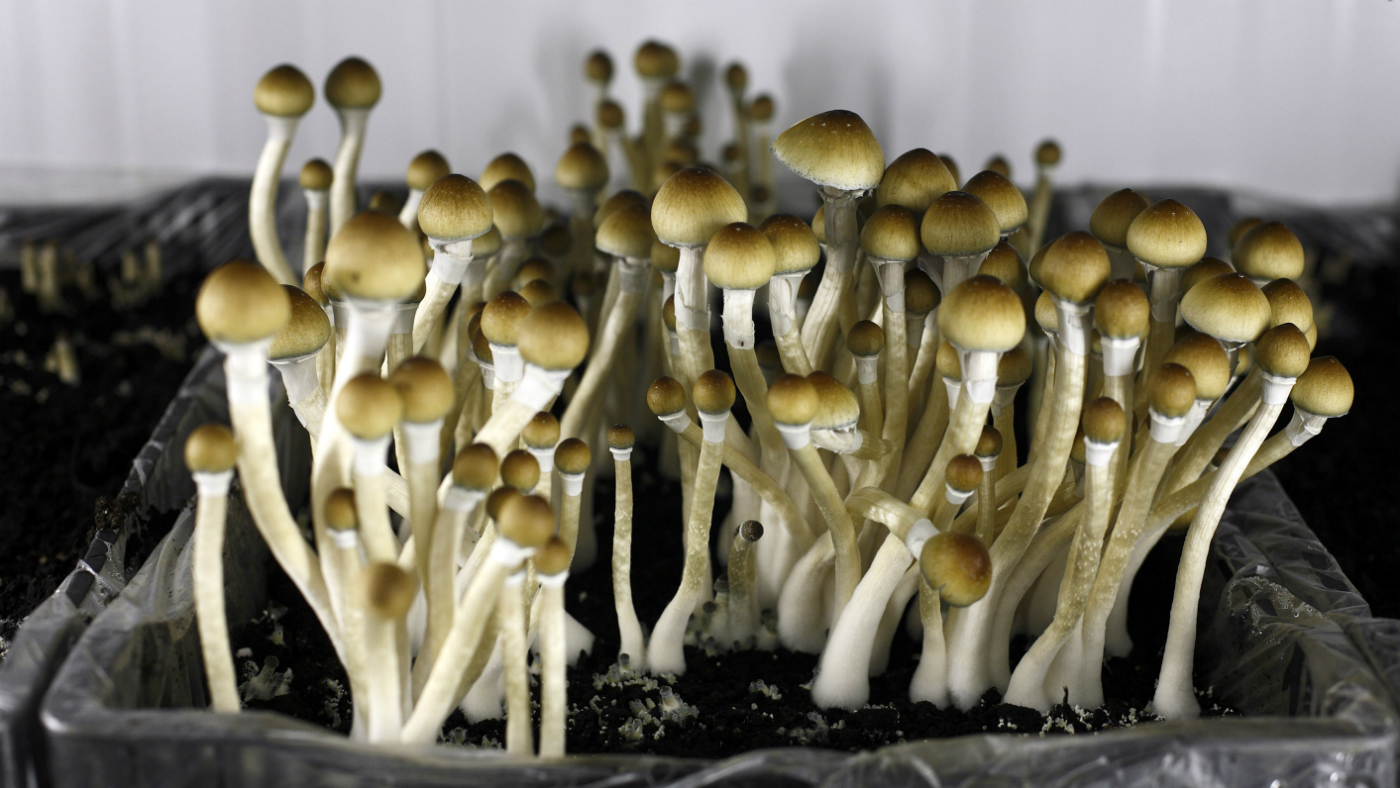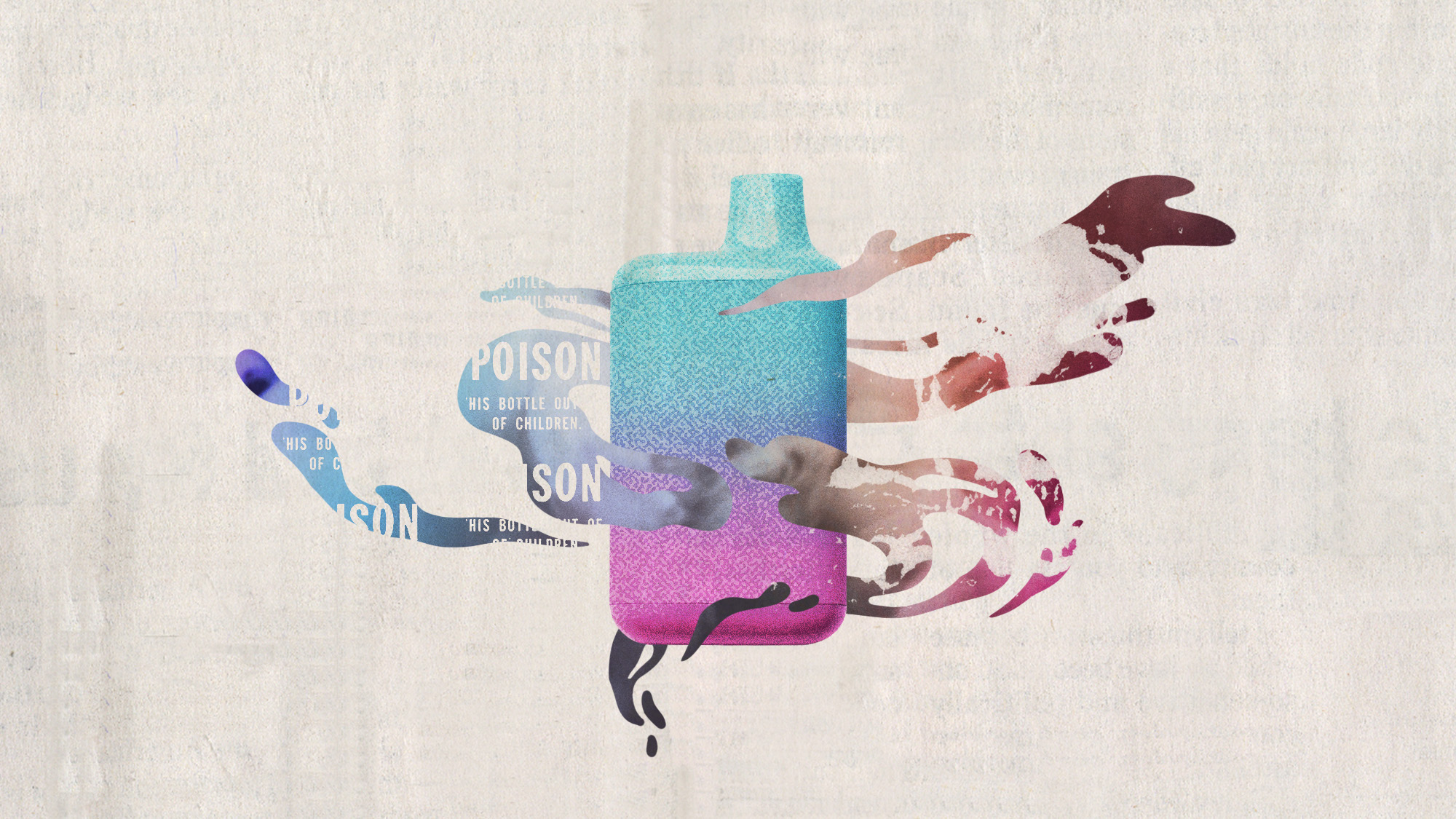How magic mushroom medicine could treat depression
Active ingredient psilocybin is found to have no harmful effects in its first clinical trial

A free daily email with the biggest news stories of the day – and the best features from TheWeek.com
You are now subscribed
Your newsletter sign-up was successful
The active ingredient in magic mushrooms has passed the first of the clinical trials designed to see if it can one day be used to treat depression.
In the largest-ever study so far on the chemical, called psilocybin, scientists at King’s College London (KCL) found that in reasonable doses, it was “safe and well tolerated when given to healthy volunteers”.
Previous smaller studies have suggested that psilocybin “helps to alleviate depressive symptoms”, says the Financial Times, “but these were not the larger placebo-controlled trials needed to convince medical opinion – and regulators – that it is a safe and effective treatment”, the paper adds.
The Week
Escape your echo chamber. Get the facts behind the news, plus analysis from multiple perspectives.

Sign up for The Week's Free Newsletters
From our morning news briefing to a weekly Good News Newsletter, get the best of The Week delivered directly to your inbox.
From our morning news briefing to a weekly Good News Newsletter, get the best of The Week delivered directly to your inbox.
Psilocybin is an illegal substance in most countries and can “bring on profound hallucinations, rapid mood changes and a dream-like state of altered perception of time and space which can last for around six hours”, says The Telegraph.
The trial involved 89 subjects, who were not suffering with depression, and the team at KCL studied the effects of a placebo against doses of either 10mg or 25mg of psilocybin.
New Atlas notes that the initial administration of the chemical “resulted in acute psychedelic effects”, but these reportedly “resolved swiftly within hours, suggesting the drug does not cause residual negative psychoactive symptoms in the days or weeks following a dose”.
No serious adverse effects were reported for 12 weeks after the trial.
A free daily email with the biggest news stories of the day – and the best features from TheWeek.com
–––––––––––––––––––––––––––––––For a round-up of the most important stories from around the world - and a concise, refreshing and balanced take on the week’s news agenda - try The Week magazine. Start your trial subscription today –––––––––––––––––––––––––––––––
“Changes in sensory perception and positive mood alteration” were among the most frequent reactions doctors noted in the trial, and Bloomberg reports that the study’s findings are “drawing researchers’ attention as a potential treatment for more than just depression”.
“Scientists are seeking to enlist patients to test the chemical for ailments including Alzheimer’s disease, anorexia, obsessive-compulsive disorder and migraines,” it says.
James Rucker, lead investigator on the study from KCL, said: “The results of the study are clinically reassuring and support further development of psilocybin as a treatment for patients with mental health problems that haven’t improved with conventional therapy, such as treatment resistant depression,” the Financial Times reports.
The psilocybin used in the trial was manufactured by London start-up Compass Pathways and not extracted from magic mushrooms. A phase-2 clinical trial will test 216 patients with depression from Europe and North America, with results expected in 2021.
Some people suffering with depression use illicit magic mushrooms as a form of treatment. But experts have warned against this practice as users “run the risk of taking the wrong dosage and experiencing harmful side effects”.
-
 The ‘ravenous’ demand for Cornish minerals
The ‘ravenous’ demand for Cornish mineralsUnder the Radar Growing need for critical minerals to power tech has intensified ‘appetite’ for lithium, which could be a ‘huge boon’ for local economy
-
 Why are election experts taking Trump’s midterm threats seriously?
Why are election experts taking Trump’s midterm threats seriously?IN THE SPOTLIGHT As the president muses about polling place deployments and a centralized electoral system aimed at one-party control, lawmakers are taking this administration at its word
-
 ‘Restaurateurs have become millionaires’
‘Restaurateurs have become millionaires’Instant Opinion Opinion, comment and editorials of the day
-
 Epstein files topple law CEO, roil UK government
Epstein files topple law CEO, roil UK governmentSpeed Read Peter Mandelson, Britain’s former ambassador to the US, is caught up in the scandal
-
 Mexico’s vape ban has led to a cartel-controlled black market
Mexico’s vape ban has led to a cartel-controlled black marketUnder the Radar Cartels have expanded their power over the sale of illicit tobacco
-
 Iran and US prepare to meet after skirmishes
Iran and US prepare to meet after skirmishesSpeed Read The incident comes amid heightened tensions in the Middle East
-
 Israel retrieves final hostage’s body from Gaza
Israel retrieves final hostage’s body from GazaSpeed Read The 24-year-old police officer was killed during the initial Hamas attack
-
 China’s Xi targets top general in growing purge
China’s Xi targets top general in growing purgeSpeed Read Zhang Youxia is being investigated over ‘grave violations’ of the law
-
 Panama and Canada are negotiating over a crucial copper mine
Panama and Canada are negotiating over a crucial copper mineIn the Spotlight Panama is set to make a final decision on the mine this summer
-
 Why Greenland’s natural resources are nearly impossible to mine
Why Greenland’s natural resources are nearly impossible to mineThe Explainer The country’s natural landscape makes the task extremely difficult
-
 Iran cuts internet as protests escalate
Iran cuts internet as protests escalateSpeed Reada Government buildings across the country have been set on fire